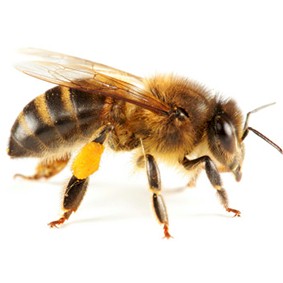Africanized honey bees are fuzzy and brownish in color. They
look like their Italian counterparts, making it tough to know if a hive has
been taken over by Africanized genetics.
Africanized honey bees are actually a hybrid. They were created in Brazil by crossing the African bee with Italian bees in the 1950s to increase honey production.
In 1957, 26 of these experimental swarms escaped quarantine and quickly took over South America. In 1985, they made their way to the US and have since spread through most of the south.
Africanized honey bees are known for being highly aggressive
and, unlike their more docile cousins, will chase a person up to a quarter of a mile if they perceive a threat. There are more than 1,000 documented cases of Africanized bees killing humans and other large animals, such as horses.
They begin foraging younger than other honey bee types and
frequently produce more honey. They also reproduce faster than other honey bees, meaning they require more food.

